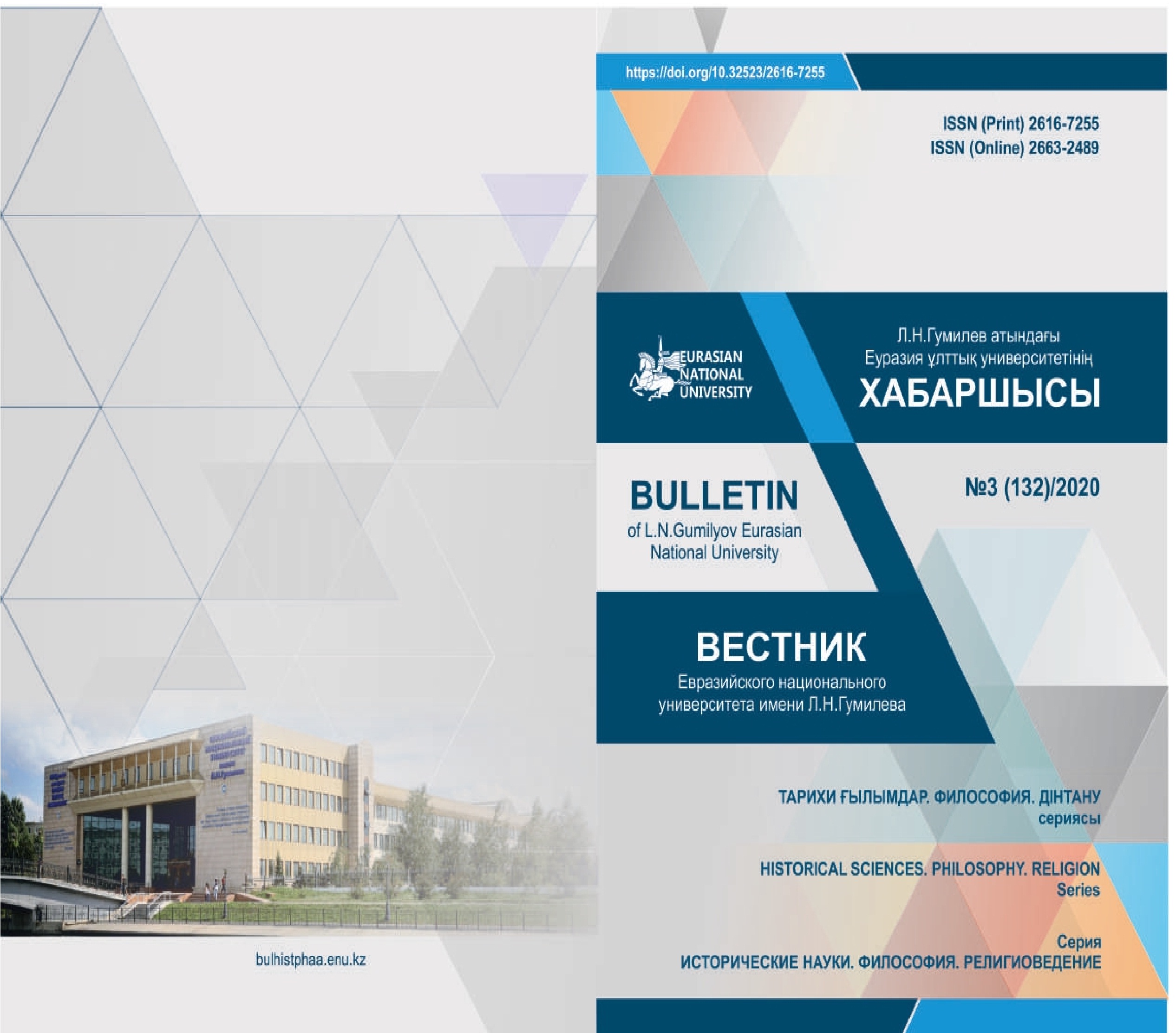World heritage in Abay Kunanbayev’s works as the core of Kazakh spirituality
Views: 290 / PDF downloads: 196
DOI:
https://doi.org/10.32523/2616-7255-2020-132-3-6-13Keywords:
Abay; Kazakh culture; Eastern culture; Western culture; world culture; worldview; spirituality; cultural heritage; creativity.Abstract
Over the years, the spiritual heritage of the great Abai Kunanbayev has been studied in terms of various aspects of socio-humanitarian science, such as linguistics, literary criticism, philosophy, history, psychology, sociology, etc. This article reflects the creative intentions of the thinker, who raised the spiritual potential of the Kazakh people to the world level, as well as the influence of European and Russian culture on Abai's work. In Hakim Abai’s works, the problems of the national life of the Kazakhs, their worldview, character, religion, mentality, language and spirituality are raised, which are an invaluable heritage for the modern younger generation. As we know that in Abai's studies, the main object is a person, i.e. personality who is perfect and worthy of respect. The scientist-thinker deeply impressed by aesthetic, ethical preferences, dreams, the meaning of life, feelings and intuition, the peculiarities of being and thinking of his imaginary image of a perfect Kazakh. Abai's poems are rich in philosophical reflections and patriotic appeals. He found inspiration in Kazakh folklore and preached ideas and images of national heroes. Furthermore, the article represents the connection between the achievements of Abai's poetic heritage and its creative potential in general.
Downloads








